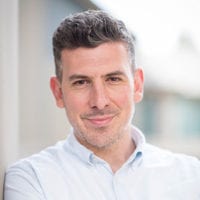Rising to a critical need for more research and leadership in climate finance, Berkeley Haas has joined a group of top universities worldwide in offering an innovative online PhD course focused on the intersection of climate economics and sustainability.
Professors Adair Morse and Panos Patatoukas, co-faculty directors of the Sustainable & Impact Finance Initiative (SAIF) at Haas, began co-teaching the online class called “Financial Economics of Climate and Sustainability” this semester.

They join faculty members from more than 10 schools including Stanford, Harvard, Yale, Columbia, and Oxford, who are teaching this course to a global cohort of nearly 1,000 students from 127 schools across 30 different countries.
The goal is to inspire a new generation of climate leaders to embark on new research that leads to innovative ways of thinking about climate finance, Patatoukas said. “Our job as instructors will be to give them the tools and the frameworks and provide ways for them to start asking interesting questions,” he said. “Overall, it’s a really good time to more formally train our students in this space. It’s rapidly evolving, it’s messy, it’s not perfect, but that makes it interesting and exciting and an area of growth that is full of opportunities.”

The course will help create change in two areas. First, it encourages students to work outside of their academic silos and come together to share ideas. “Sometimes, in a business school, we’re thinking about these problems in isolation, but this is definitely a field where everybody has to work with each other to come up with better solutions,” Patatoukas said. Second, the course will encourage students to publish cutting-edge research. “We feel like our students will have an easier time getting published in an area that is so impactful and new where basic questions remain open,” he said.
Each week, professors from different institutions will teach topics including climate, sustainability, and economic theory; corporate carbon disclosure; introduction to climate science; climate and asset pricing; and climate and investment management. All students enrolled in the course for credit will be required to submit an idea for a research project or a plan to review a set of sustainability papers from outside of the course by the last class.
“The timing is perfect for this course,” Patatoukas said. “As consensus has grown worldwide over the climate crisis, a transition to net zero isn’t happening fast enough.”
That’s where mobilizing massive amounts of capital to fight climate change comes into play. An estimated $4 trillion to $5 trillion a year in resources will need to be financed and distributed to address climate global needs, said Terhilda Garrido, interim executive director of SAIF. “Only a fraction will be provided by governments,” she said. “This course addresses our need to mobilize innovative climate finance quickly, train leaders in finance, and learn from each other, globally. Climate is a global issue requiring global collaboration.”